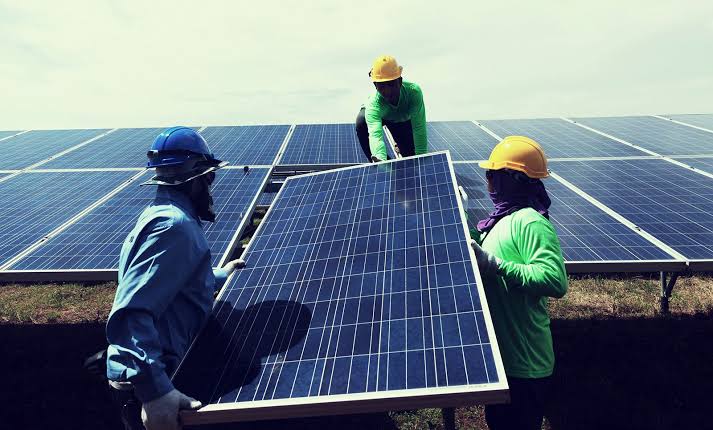At least 441 youths from Acholi, Lango and West Nile sub-regions have been equipped with entrepreneurial, solar technical and installation skills, and given funds to support their businesses.
The youths underwent short vocational courses at different training institutions under the Employment Skills for Development program, a motion program co-financed by the European Union and the German Federal Ministry of Economic Cooperation and Development in partnership with the Ministry of Energy and Mineral Development.
Under the VET Toolbox 2 project, GIZ, a partner in the project trained 101 operation and maintenance technicians on the installation and maintenance of affordable tech systems specifically solar mini-grids that are being installed across the country whereas AVSI Foundation trained 340 people, mostly small-scale entrepreneurs on the productive use of energy so that there is a business case for electrifying rural areas.
Donald Agaba, the program team lead explained that the project is aimed at achieving the Uganda Vision 2040 whose goal is to transform Uganda from a predominantly peasant and low-income country to a competitive upper middle-income status country.
Dauda Kimanayi, the project manager explained that Uganda is endowed with great renewable energy potential, able to generate power from solar and hydro resources, biomass and wind but a great percentage of people in the country do not have access to such energy which is a barrier to development.
“This low electrification rate is a major barrier to economic development and poverty reduction. Mini-grids provide a solution here since they can supply reliable and grid-like electricity in villages where grid extension is not financially viable.” He said. Adding that the most affected group of people are those living in rural areas.
Jennifer Nana, a beneficiary of this program says she is now skilled enough to install solar power equipment and advise young girls to continue pursuing their dreams without giving up.
Jona Osede, another beneficiary says he acquired solar operation and maintenance drawing inspiration from the fact that there is no electricity in Kumi, his home district where many people live in darkness. By the time he joined the program, Osede already had a certificate in electrical installation.
Meanwhile, Paska Acan from Lamwo district who received both entrepreneurial and productive use of energy skills says her income from the small milling machine has increased from 20,000 to 80,000 Shillings per day. She has been able to not only employ two people but also pay her children’s school fees, buy two oxen and is planning to buy another milling machine.
The same project is being implemented in 11 other African countries.
URN.

